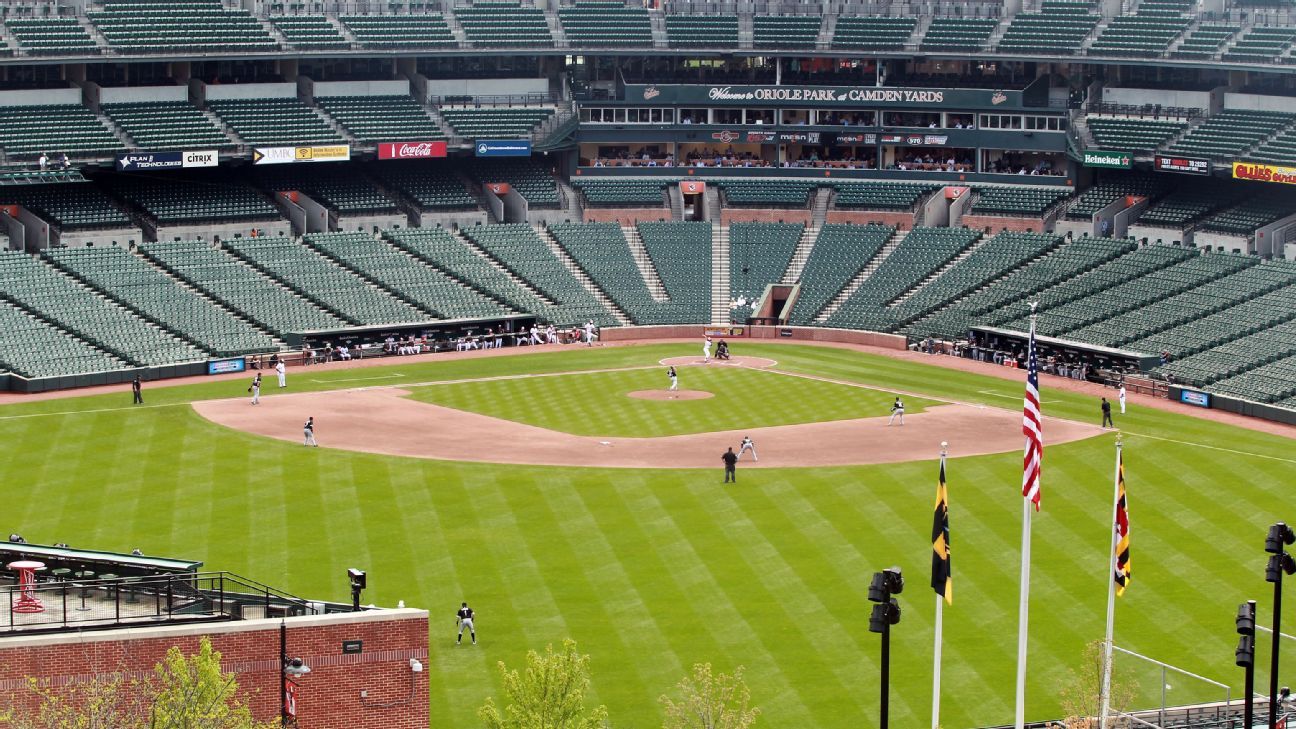
With Major League Baseball mulling its options on returning to play amid the coronavirus pandemic, Buck Showalter, who managed the only game in MLB history played without spectators, said fans are a critical component, and having games without them would affect players.
"You need people there and saying, 'Hey, it's important what you're doing. We're counting on you,'" Showalter said Wednesday on Spain and Company on ESPN Radio. "You need that emotional flicker, so to speak, that makes you realize why you do all these things, especially in baseball, where you play 162 games, seven days a week. That's what I have trouble getting across to football coaches and even basketball coaches. We play every day. We need that emotion."
On April 29, 2015, Showalter managed the Baltimore Orioles to an 8-2 win over the Chicago White Sox at Camden Yards -- a game played without fans because of safety concerns following several days of unrest in Baltimore.
"I think what really hit me was how much a lot of the emotion of the game and a lot of the things are driven during the course of a game through the emotions of the fans," Showalter said. "We didn't have any walk-up music. It was pure baseball. You could hear the announcers talking. You had to be careful about what you said to the umpires because they could hear every word. We didn't have to use the bullpen phones. Heck, we could just yell down there. But it was really different.
"I think [for] everybody, the novelty of it wore off very quickly. We knew it was something that we didn't want to continue down that road."
Last week, MLB commissioner Rob Manfred told staffers, "I fully anticipate baseball will return this season," sources told ESPN's Jeff Passan.
If games are conducted without fans, Showalter said it will "expose" the players who are "self-motivating." That isn't a bad thing, he said, but relying too much on self-motivation can become a problem because fan energy is another component of success in baseball.
"If you keep going to that well too often to self-motivate, it becomes a real issue," he said. "There's so many times in sports when you're doing something so repetitiously that you kind of get into that automatic drive, so to speak, mentality for a while. But you need that extra juice."















 Phone: (800) 737. 6040
Phone: (800) 737. 6040 Fax: (800) 825 5558
Fax: (800) 825 5558 Website:
Website:  Email:
Email: 






